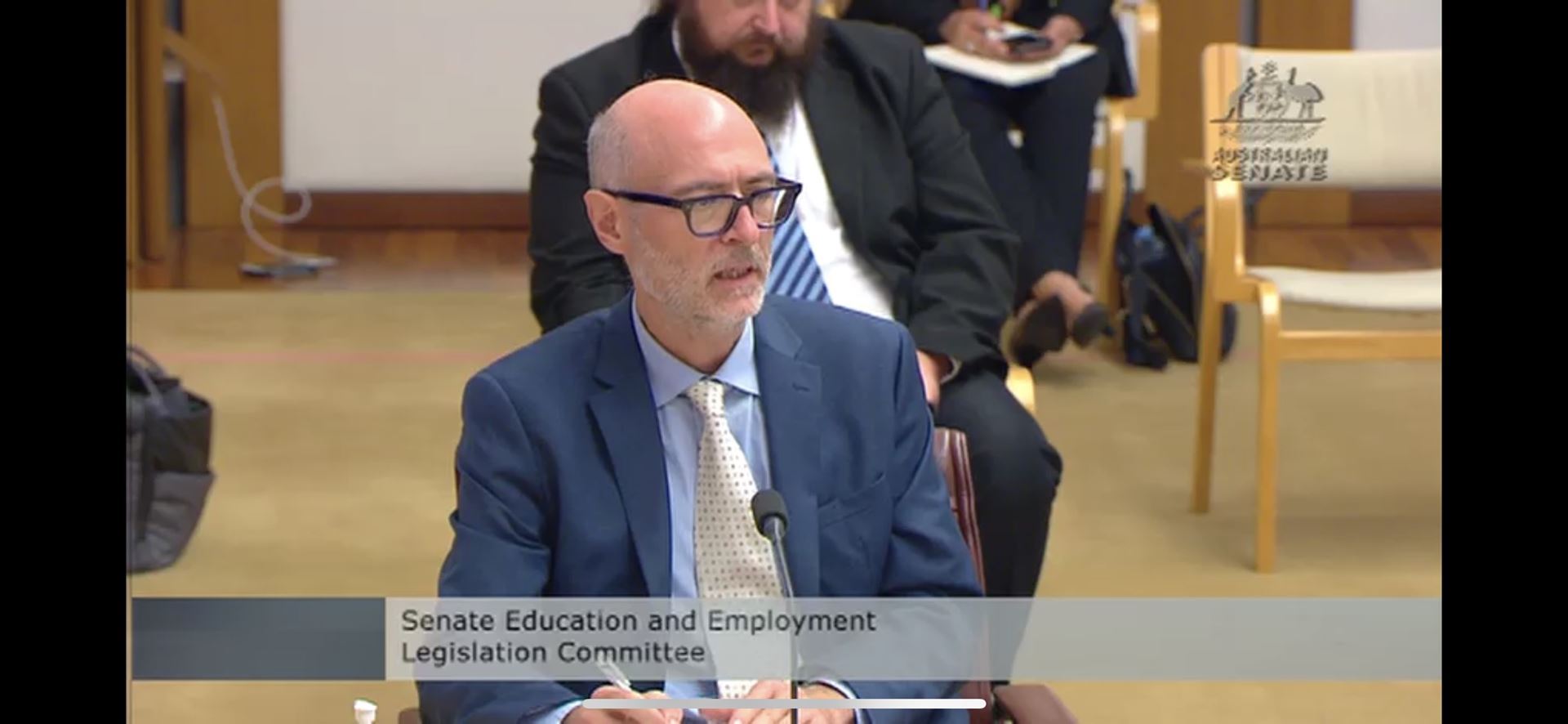AIP President speaks at Senate inquiry
- Watch a recording of Prof Rogge’s presentation (14:35:40 onwards) here.
 Prof Sven Rogge spoke on behalf of the AIP to advocate for independence of the Australian Research Council (ARC) at the 9 March proceedings of the Senate Education and Employment Legislation Committee.
Prof Sven Rogge spoke on behalf of the AIP to advocate for independence of the Australian Research Council (ARC) at the 9 March proceedings of the Senate Education and Employment Legislation Committee.
The Senate inquiry heard evidence from representatives of Australia’s academic and research sector as the Committee considered a bill to amend the Australian Research Council Act 2001 to prevent ministerial interference with grants approved for funding by the ARC.
The bill was proposed in response to widespread outcry from the research community after acting education minister Stuart Robert vetoed six ARC grants in the humanities on Christmas Eve last year.
The STEM panel at the inquiry pushed the importance of the Haldane principle, under which funding bodies operate independently under rules defined by the government. The principle is implemented in the UK, Europe, and the US.
“Ministerial interventions that threaten the autonomy and independence of scientific institutions and processes risk undermining the quality of Australia’s research and reflect poorly on Australia’s standing in the international community,” Prof Rogge said at the inquiry.
He also emphasised the importance of clearly communicated and reliable timelines for funding decisions:
“Arbitrary delays announcing grant outcomes jeopardise research projects linked with industry partners, leads to the loss of highly skilled early career researchers (ECRs) near the end of their contracts, and diminishes Australia’s international competitiveness.”
The bill was ultimately defeated as of 21 Mar on the premise that ministerial power to block grants may be needed in instances of security or criminal intelligence that compromise Australia’s safety.
The full report of the Committee can be found here.
Greens senator Mehreen Faruqi, who spearheaded the bill, said: “Despite an overwhelming majority of contributors supporting the removal of the veto, the committee majority have relied selectively on evidence provided by a very small number of witnesses.”
A united front from across academia and research
Despite the disappointing outcome, the experience was a strong showing of the whole research and academic sector united with a vision of research independence.
Prior to the inquiry, the AIP signed an open letter to oppose ministerial interference in solidarity with the Royal Australian Chemical Institute, the Statistical Society of Australia, the Astronomical Society of Australia, and Australian Mathematical Inquiry.
Speaking alongside Prof Rogge on the STEM panel at the 9 Mar inquiry were Prof Mark Hutchinson and Ms Mischa Schubert from Science and Technology Australia, Prof Hugh Bradlow and Ms Kylie Walker from the Australian Academy of Technology and Engineering, and Prof Hans Bachor and Dr Stuart Barrow from the Australian Academy of Science.
The full list of representatives from the academic and research sector who were consulted at the Senate inquiry can be found here.
Photo: Screengrab from the 9 Mar Senate inquiry.
